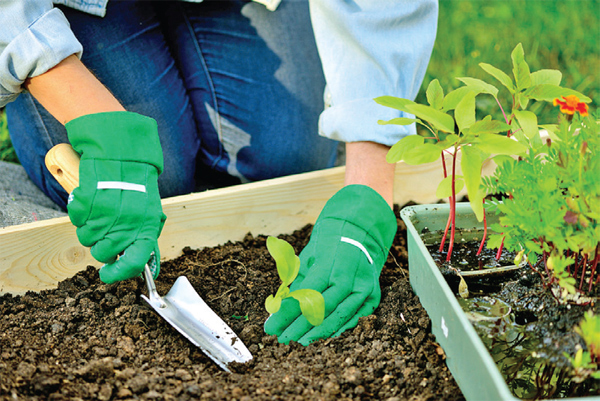Organic Herb Gardening is essential for the kitchen and can be done for free by growing your own organic herb garden. Choose herbs from Italy or Thailand, such as culinary herbs, basil, bay leaves, chives, dill, marjoram, oregano, and parsley. The first step is to find a suitable location with adequate sunlight and drainage. Mint is one herb plant that should not be mixed with others because it behaves like a weed and has a tendency to kill the others. Organic herb gardening is a fun way to use herbs for cosmetic, craft, household, or medicinal purposes.
To grow an organic herb garden outside, you need to purchase organic containers and use compost bins to make organic fertilizer. To grow organic herbs in pots, use a mixture of peat, perlite, and vermiculite instead of soil. To ensure adequate sunlight, you can place them outside and then bring them in when it gets too cold, or place them in the home's western or southern windows. Pests and weeds must be controlled, and mulch should be applied at least 3 to 4 inches thick to be effective.
Do you frequently use herbs and spices in your cooking? If you do, you can get these for free by growing your own organic herb garden instead of buying them at the store. In fact, it is so simple that even children can do it.
So, which herbs should you grow? Because they will be used in cooking, why not choose herbs from Italy or Thailand? These are known as culinary herbs. Other herbs you can grow for cooking include basil, bay leaves, chives, dill, marjoram, oregano, and parsley.
You probably want to start from scratch, which means you'll need to buy herb seeds. These come in packs, and it's best to read the instructions before you open them.
Some organic herb seeds can be planted directly in the soil, while others must be grown in seedbeds. Best of all, you won't have to worry about pests as much because they aren't as common when compared to planting fruits or vegetables.
Mint is one herb plant that should not be mixed with others because it behaves like a weed and has a tendency to kill the others. However, because you require it, it is best to grow it in a pot so that it does not interfere with your other crops.
Organic herb gardening is similar to organic farming in that they are grown using similar techniques. The first step is to find a suitable location with adequate sunlight and drainage. Check the soil conditions as well, because what you have in your backyard may not be suitable.
When the soil is ready for planting, the rest of the work is simple because you only need to monitor their progress on a daily basis. You should also use compost bins to make your own organic fertilizer to use in the garden.
Aside from growing an organic herb garden outside, you can also do so indoors, much closer to the kitchen. You will need to purchase organic containers instead of planting these in the ground. These can be created out of clay, plastic, or wood. The important thing is that it has good drainage and air circulation.
When growing organic herbs in pots, use a mixture of peat, perlite, and vermiculite instead of soil. They require regular watering, so make sure the soil is moist but not damp. Because they require adequate sunlight, you can place them outside and then bring them in when it gets too cold, or you can place them in the home's western or southern windows.
Pests and weeds must be controlled whether your herbs are grown indoors or outdoors. You can pick them off by hand or have other insects do the dirty work for you. Mulch is another option, and it should be applied at least 3 to 4 inches (8 to 10 cm) thick to be effective.
Herb gardening is a lot of fun because it can be used for cosmetic, craft, household, or medicinal purposes aside from cooking. However, if you enjoy cooking, organic herb gardening is beneficial in the kitchen.


















0 komentar:
Posting Komentar